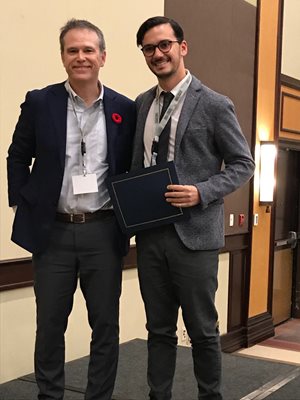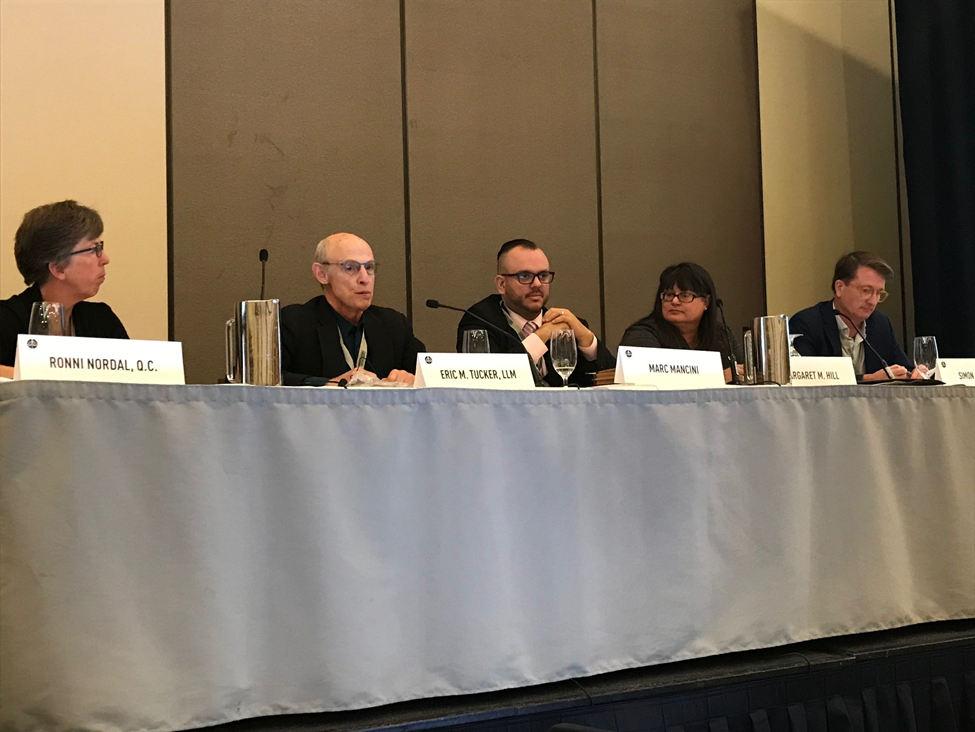On November 8 and 9, I had the privilege of participating in the 2019 CBA Administrative Law, Labour and Employment Law Conference as the winner of the Labour and Employment Section’s student essay contest. The conference was my first CBA event, but will not be my last. In addition to attending topical panel discussions, I met lawyers from across Canada and learned about their interesting practices. Our profession’s commitment to mentoring and continued learning – which the CBA embodies – impressed me and ought to be celebrated.
The conference catered to practitioners interested in labour and administrative law. Plenary panels focussed on general topics and were accompanied by breakout sessions more narrowly tailored to each area of law. I attended the labour and employment programming which included a panel on the unfolding phenomena of workplace fissuring. The panel—consisting of academics Eric Tucker and Mark Mancini, Employment and Social Development Canada’s Margaret Hill, and Goldblatt Partner’s Simon Archer—tackled the displacement of typical employment arrangements by precarious and platform-based relationships. The discussion also touched on policy responses to these changes undertaken in the federal sector and across the world. Nimbly switching between academic approaches and real-world implications, the panel reflected law’s unique marriage of the principled and the practical.
The second day of the conference opened with Supreme Court Justice Sheilah Martin. Billed as a “fireside chat,” the intimate, and, at times, frank conversation touched on Justice Martin’s fascinating personal and professional history. This casual discourse affirmed the advice I have received from many mentors: judges are people too. Justice Martin spoke openly about how her roots in Quebec, her experiences as a working mother, and the time she spent in Western and Northern Canada inform her approach to legal issues. The discussion will certainly be in the back of my mind next time I read one of Justice Martin’s decisions.
On top of the enriching programing, my interactions with fellow participants including recent calls, established practitioners, and administrative adjudicators expanded my professional network. I was also exposed to a diversity of career paths available after law school. The Labour and Employment Section’s ability to facilitate collegial interaction between management and worker-side counsel and foster productive discussions between them generated insight about emerging issues relevant to the labour bar. Transpiring outside the adversarial context, these interactions will surely benefit lawyers and their clients as well.
Based on my experience at the conference, I would strongly encourage other students to get involved with the CBA. The student essay competitions cover a variety of practice areas which can be a great outlet for class papers. In addition, the CBA offers young lawyers an opportunity to cultivate their professional networks and acquaint themselves with different areas of legal practice.
Cole Eisen is a J.D. candidate at the University of Toronto’s Faculty of Law (Class of 2020).

Cole Eisen, a student in the University of Toronto Faculty of Law (Class of 2020), was the winner of the inaugural Labour and Employment Section essay contest. Christopher Deehy, member-at-large on the Labour and Employment Law Section Executive, made the presentation at the CBA Administrative Law, Labour and Employment Law Conference.

The Fissured Workplace panel took a big-picture look at the state of the workplace and the laws currently in place to govern it. Moderated by Ronni Nordal (far left), the panelists included (left to right) Eric M. Tucker of Osgoode Hall Law School, Marc Mancini of Université du Québec à Montréal, Margaret M. Hill, Executive Director, Secretariat to the Expert Panel on Modern Federal Labour Standards, Labour Program, ESDC, and Simon Archer, Goldblatt Partners.